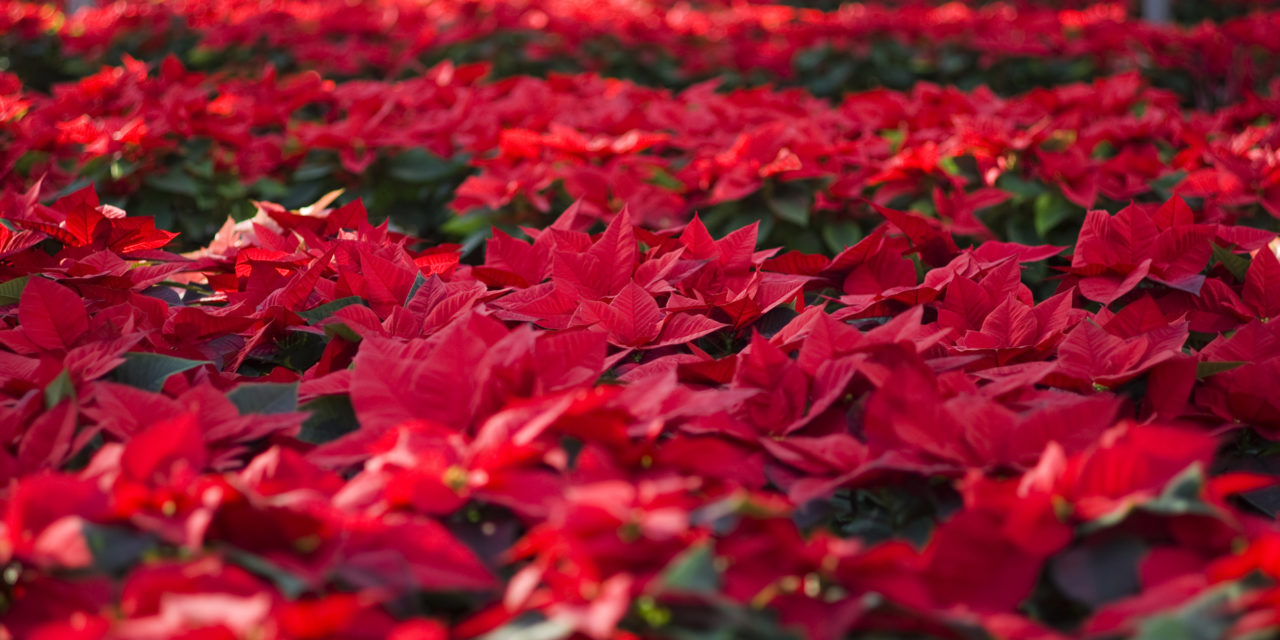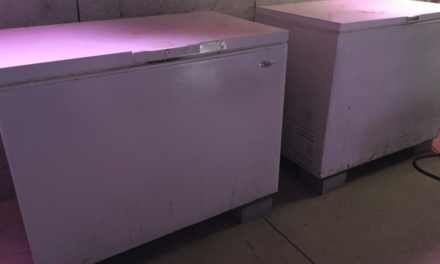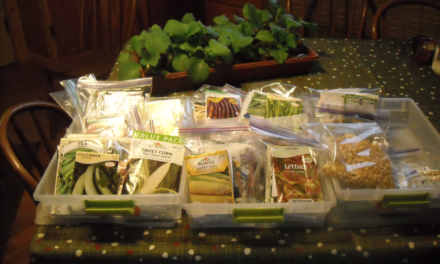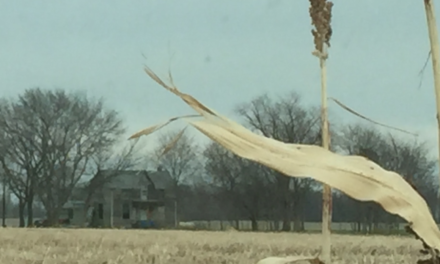 Poinsettias are commonly associated with Christmastime and are also known as the Christmas Flower and Christmas Star. The legend of the poinsettia came from Mexico and begins with a small child who wanted to bring a gift to baby Jesus but did not have any means to do so. Instead, she gathered a small handful of weeds from the side of the road and placed them on the church altar on Christmas Eve. When she placed the weeds on the alter, they turned into beautiful green and red flowers. This was a Christmas miracle and the flowers were known as Flores de Noche Buena, or Flowers of the Holy Night. The flowers represent the Star of Bethlehem, the red bracts symbolize the blood of Christ, and the white represents the cleansing of sin.
Poinsettias are commonly associated with Christmastime and are also known as the Christmas Flower and Christmas Star. The legend of the poinsettia came from Mexico and begins with a small child who wanted to bring a gift to baby Jesus but did not have any means to do so. Instead, she gathered a small handful of weeds from the side of the road and placed them on the church altar on Christmas Eve. When she placed the weeds on the alter, they turned into beautiful green and red flowers. This was a Christmas miracle and the flowers were known as Flores de Noche Buena, or Flowers of the Holy Night. The flowers represent the Star of Bethlehem, the red bracts symbolize the blood of Christ, and the white represents the cleansing of sin.
These plants flower during the winter and are native to Central America. These were known as cuetlaxochitl by the Aztecs are were used to make clothing dye, cosmetics, medicine, and latex. To the Aztecs, they were viewed as symbols of purity, but today poinsettias are given as gifts to bring best wishes of celebration, good cheer, and success.
 Here are some tips on how to care for your poinsettia during the holiday season:
Here are some tips on how to care for your poinsettia during the holiday season:
When picking out a plant, pick one with dark green foliage. Fallen and discolored leaves are a sign of a poor health. The flower bracts should have little to no pollen and they should be proportionate to the plant. When taking your plant home, remember to wrap your plant up before exposure to the cold. Poinsettias are tropical plants that are typically grown between 65 and 70 degrees. Unwrap your plant as soon as it’s inside as the bracts can droop if they are wrapped for too long.
Poinsettias thrive near sunny or well-lighted areas. Do not let them touch a window pane and keep them away from cold or warm drafts. To extend the blooming time, they can be placed in a cooler room during the night. (55 to 60 degrees) Only water when the soil is dry and make remove any standing water from the plant saucer. Not watering your poinsettia or overwatering can make the bracts wilt.
Even though poinsettias are commonly referred to as “poisonous,” they pose a minimal threat to both humans and pets. The milky sap in poinsettias, diterpenoid euphorbol esters, and sponin-like detergents may cause some mild signs of irritation when exposed to the skin. Due to the extremely low level of toxicity with poinsettia ingestion, medical treatments are rarely necessary. Be careful when handling the plants because the bracts can bleed and stain clothing.
This holiday season, be sure and check out the selection of winter plants at your local Buchheit store. In addition to poinsettias, we also carry Norfolk Island pines and Christmas cacti.






